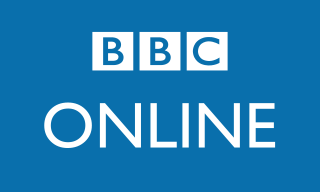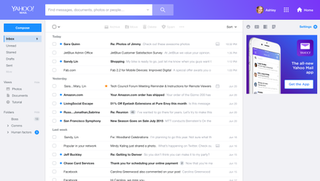
RSS is a web feed that allows users and applications to access updates to websites in a standardized, computer-readable format. These feeds can, for example, allow a user to keep track of many different websites in a single news aggregator. The news aggregator will automatically check the RSS feed for new content, allowing the list to be automatically passed from website to website or from website to user. This passing of content is called web syndication. Websites usually use RSS feeds to publish frequently updated information, such as blog entries, news headlines, or episodes of audio and video series. RSS is also used to distribute podcasts. An RSS document includes full or summarized text, and metadata, like publishing date and author's name.

Web syndication is a form of syndication in which content is made available from one website to other sites. Most commonly, websites are made available to provide either summaries or full renditions of a website's recently added content. The term may also describe other kinds of content licensing for reuse.

The name Atom applies to a pair of related Web standards. The Atom Syndication Format is an XML language used for web feeds, while the Atom Publishing Protocol is a simple HTTP-based protocol for creating and updating web resources.

BBC News Online is the website of BBC News, the division of the BBC responsible for newsgathering and production.

BBC Online, formerly known as BBCi, is the BBC's online service. It is a large network of websites including such high-profile sites as BBC News and Sport, the on-demand video and radio services co-branded BBC iPlayer, the children's sites CBBC and CBeebies, and learning services such as Bitesize. The BBC has had an online presence supporting its TV and radio programmes and web-only initiatives since April 1994, but did not launch officially until 28 April 1997, following government approval to fund it by TV licence fee revenue as a service in its own right. Throughout its history, the online plans of the BBC have been subject to competition and complaint from its commercial rivals, which has resulted in various public consultations and government reviews to investigate their claims that its large presence and public funding distorts the UK market.

Yahoo! Mail is an email service launched on October 8, 1997 by the American company Yahoo!, now a subsidiary of Verizon. It offers four different email plans: three for personal use and another for businesses. As of January 2020, Yahoo! Mail had 225 million users.

On the World Wide Web, a web feed is a data format used for providing users with frequently updated content. Content distributors syndicate a web feed, thereby allowing users to subscribe a channel to it by adding the feed resource address to a news aggregator client. Users typically subscribe to a feed by manually entering the URL of a feed or clicking a link in a web browser or by dragging the link from the web browser to the aggregator, thus "RSS and Atom files provide news updates from a website in a simple form for your computer."
OpenSearch is a collection of technologies that allow publishing of search results in a format suitable for syndication and aggregation. It is a way for websites and search engines to publish search results in a standard and accessible format.
A hackathon is a design sprint-like event; often, in which computer programmers and others involved in software development, including graphic designers, interface designers, project managers, domain experts, and others collaborate intensively on software projects.
Microformats are a set of defined HTML classes created to serve as consistent and descriptive metadata about an element, designating it as representing a certain type of data. They allow software to process the information reliably by having set classes refer to a specific type of data rather than being arbitrary. Microformats emerged around 2005 and were predominantly designed for use by search engines and aggregators such as RSS.

In computing, a news aggregator, also termed a feed aggregator, feed reader, news reader, RSS reader or simply an aggregator, is client software or a web application that aggregates syndicated web content such as online newspapers, blogs, podcasts, and video blogs (vlogs) in one location for easy viewing. The updates distributed may include journal tables of contents, podcasts, videos, and news items.
Podcasting, previously known as "audioblogging", has its roots dating back to the 1980s. With the advent of broadband Internet access and portable digital audio playback devices such as the iPod, podcasting began to catch hold in late 2004. Today there are more than 115,000 English-language podcasts available on the Internet, and dozens of websites available for distribution at little or no cost to the producer or listener. According to one survey in 2017, 42 million Americans above the age of 12 listen to podcasts at least on a weekly basis.
Pageflakes was an Ajax-based startpage or personal web portal similar to Netvibes, My Yahoo!, Myhomepage, iGoogle, and Microsoft Live that operated from 2005 until January 2012. The site was organized into tabs, each tab containing user-selected modules called Flakes. Each Flake varied in content; information such as RSS/Atom feeds, Calendar, Notes, Web search, weather forecast, del.icio.us bookmarks, Flickr photos, social networking tools like Facebook, YouTube, Twitter, email and user-created modules. Pagecasts allowed users to share their pages publicly, allowing them to share a curated page of content that would be of interest to others .Pageflakes had 250,000 Flakes and over 130,000 Pagecasts.

My Yahoo! is a start page or web portal which combines personalized Yahoo! features, content feeds and information. The site was launched in 1996 and was one of the company's most popular creations.
A lab(s) website is a specific type of website most commonly dedicated to research and development programs.

LugRadio was a British podcast on the topic of Linux and events in the free and open source software communities, as well as coverage of technology, digital rights and politics.
Web syndication technologies were preceded by metadata standards such as the Meta Content Framework (MCF) and the Resource Description Framework (RDF), as well as by 'push' specifications such as Channel Definition Format (CDF). Early web syndication standards included Information and Content Exchange (ICE) and RSS. More recent specifications include Atom and GData.
OpenLearn is an educational website. It is the UK's Open University's contribution to the Open educational resources (OER) project and the home of free, open learning from The Open University. The original project was part-funded by the William and Flora Hewlett Foundation.

Google Developer Day events were one-day web developer-focused gatherings around the world held annually by Google. They include seminars and codelabs focused on building of web, mobile, and enterprise applications with Google and open web technologies such as Android, HTML5, Chrome, App Engine, Google Web Toolkit and give participants an excellent chance to learn about Google developer products as well as meet the engineers who work on them.
Inoreader is a web-based content and RSS feed reader, a cloud-based service for web browsers and mobile devices running iOS and Android. It compiles news feeds from online sources for the user in unified layout to customize and share with others. Inoreader was first released by Innologica in 2013.








